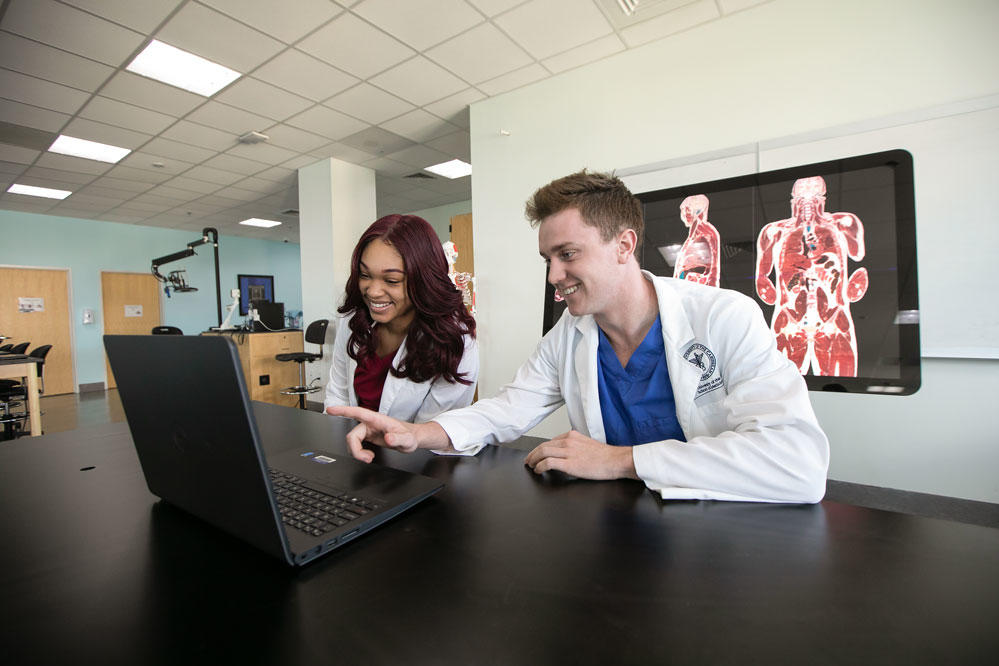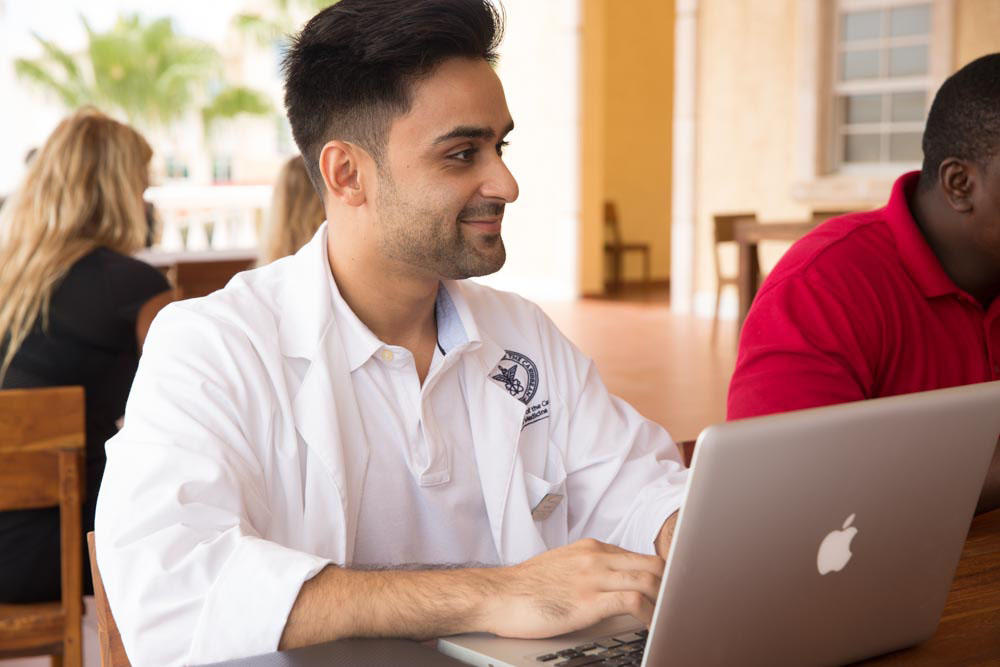Succeeding at an accredited medical school such as American University of the Caribbean School of Medicine* (AUC) requires hard work, dedication, and perseverance. But it also requires planning and a solid grasp of all the demands medical school will make on you. Every student has their own approach to med school, but below we’ll go over some general tips on how to prepare for medical school that many of you may find helpful.
Tips to Help you Succeed in Medical School
1. Keep to your schedule
As an undergraduate, you may have been able to get away with cramming the night before an exam, or finishing required course materials all at the end. After all, medical students are typically bright students who may not have found some of their undergraduate work especially challenging. But this is a recipe for failure in medical school.
It doesn’t matter how bright you are, medical school requires diligent study habits. There is simply too much to do, and too much material to memorize for you to put things off. Preparing for medical school means working steadily and consistently toward building knowledge and skills.
2. Lean in to your study habits
By now, you probably have a good sense of how you learn most effectively. For some students, flash cards will become their best friends in medical school. These can be useful study aids when there is so much to memorize, but they are not for everyone. Some will learn better by poring over text, or by sketching and taking detailed notes.
The point here is that what works for one student may not work for another. As you adapt to the challenges of medical school, don’t try to reinvent yourself as a student. One of the most important things to know before medical school is that just because a fellow student spends hours shuffling through flash cards, it doesn’t necessarily mean it will work for you. No single method works for everyone. Do what you know works best for you, but also experiment with different study methods. You may just find a better way.
3. Set aside time for family and friends
Medical school is a major commitment that will consume most of your waking hours. It’s for that very reason you need to set aside time for your personal life. Even if it is only one day a week, or even just half a day, you should take some “me time” each week. It will help you maintain your performance in medical school, because no matter how driven you may be, your mind and body need down time. You also need to socialize and maintain relationships with friends and family.
It might sound strange that preparing for medical school means committing to personal time. This is an important commitment to make now, because your schedule may not improve much in the future. Residency will dominate your time as well, and your later working career may do the same. Many doctors embrace long hours because they are driven to help as many patients as they can. But this can also be a path to burnout, which is a growing problem for both medical students and licensed physicians. Most people can only “live for work” for a limited time.
Find a balance between school and personal life. Setting aside personal time in medical school will help you achieve that balance. It will also set a good habit for the rest of your professional medical career.
4. Explore the house of medicine
You may think you already know what specialty you want to pursue, and maybe you will stick to it. But many medical students are surprised to find themselves drawn in unexpected directions. Talk to doctors in any specialty, and you will find some who had their hearts set on it from the beginning. But there will also be many others who discovered a new passion in medical school.
One of the things to know before medical school is that you need to keep an open mind. Medical school isn’t just some technical exercise, where you learn the skills needed to do a job. It is an all-around educational experience, so embrace the exploration. Be open to unexpected possibilities. Learn more about choosing a specialty.
5. Ask for help when you need it
Medical school attracts bright, driven students. But medical school is one of the most challenging educational experiences in the world, period. If school has always come easily, you might be discouraged if you find yourself struggling with a formidable class load.
Study groups and friends are an age-old source of help. However, good medical schools also offer support systems and resources to help students when they hit a bump in the road. Part of preparing for medical school is acknowledging when you need help. You are shooting for the stars, academically speaking. Everyone needs a little guidance now and then.
6. Start preparing for medical school licensing exams early
As an undergraduate, you may have started studying for a major test a week in advance. That isn’t a good strategy in medical school, particularly when it comes to the United States Medical Licensing Examination (USMLE) series. You need to start early and study hard, because there is just so much material.
Doing well on the USMLE Step 1 is often crucial, because it is a major factor in residency placement. Having a higher score could make all the difference. So one of the most important things to know before medical school is understanding the importance of the USMLE. Study early, often, and hard.
7. It’s never too early to plan for residency
Matching to a residency program will become a growing preoccupation during your third and fourth year of medical school. It is a long and competitive process. It requires building your curriculum vitae (CV), gathering letters of recommendation, attending interviews, and submitting your ranked list of residency programs. It all culminates in the Main Residency Match, often called simply The MATCH℠, when you learn if and where you may complete your medical training. Fortunately, there is plenty of help with the residency application process along the way.
Now that you know a bit more about what to do before starting medical school, you may have a better idea of how to succeed as an “MS1”—a first-year medical student. So gather your thoughts, think about your plan for medical school, and review AUC’s full list of medical school admission requirements. And, when you’re ready to start your journey, apply for admission to AUC.
Related Resources:
- Advice from an AUC Graduate
- AUC School of Medicine resources
- Why go to medical school in the Caribbean?
*American University of the Caribbean School of Medicine is accredited by the Accreditation Commission on Colleges of Medicine (ACCM, www.accredmed.org), which is the accreditor used by the country of St. Maarten.





